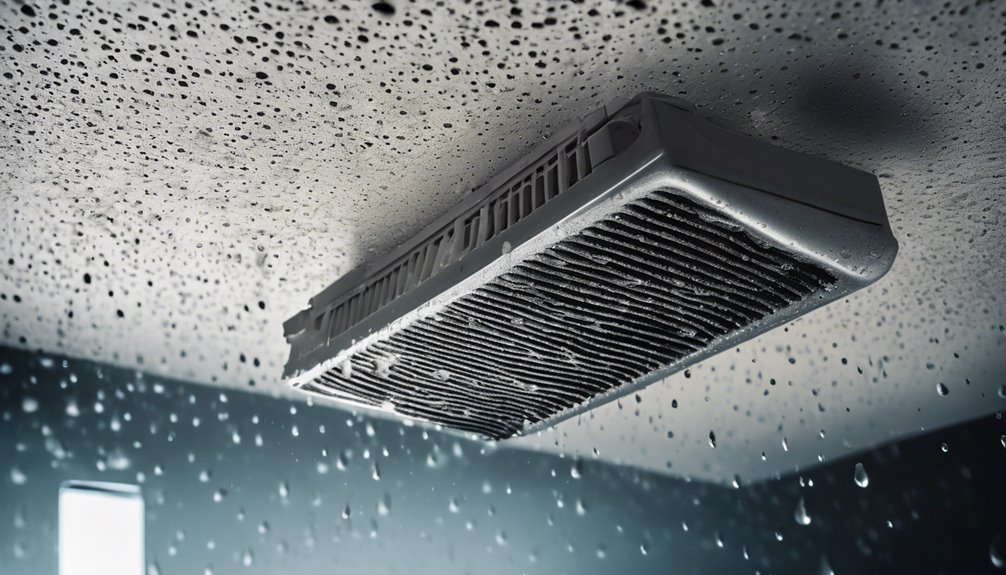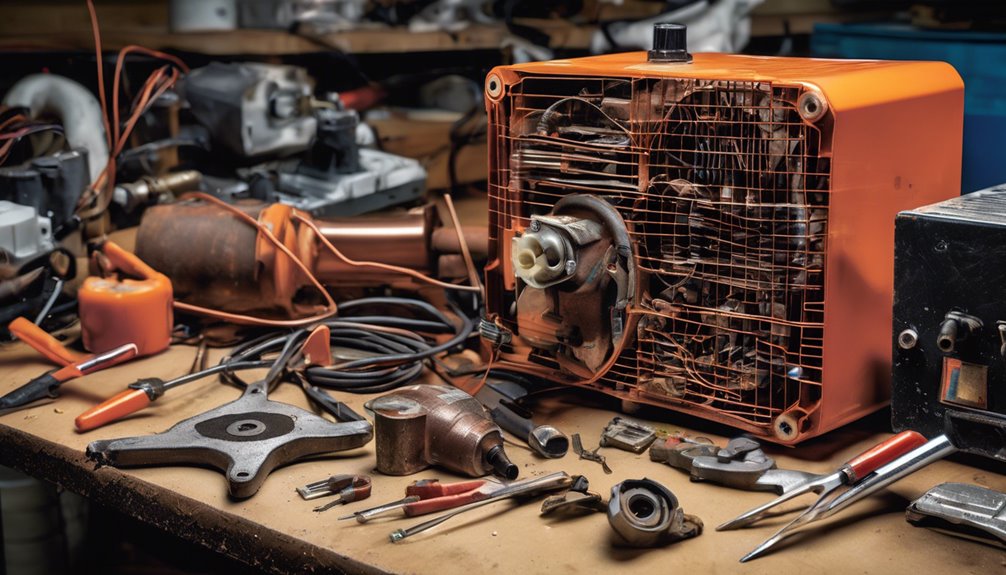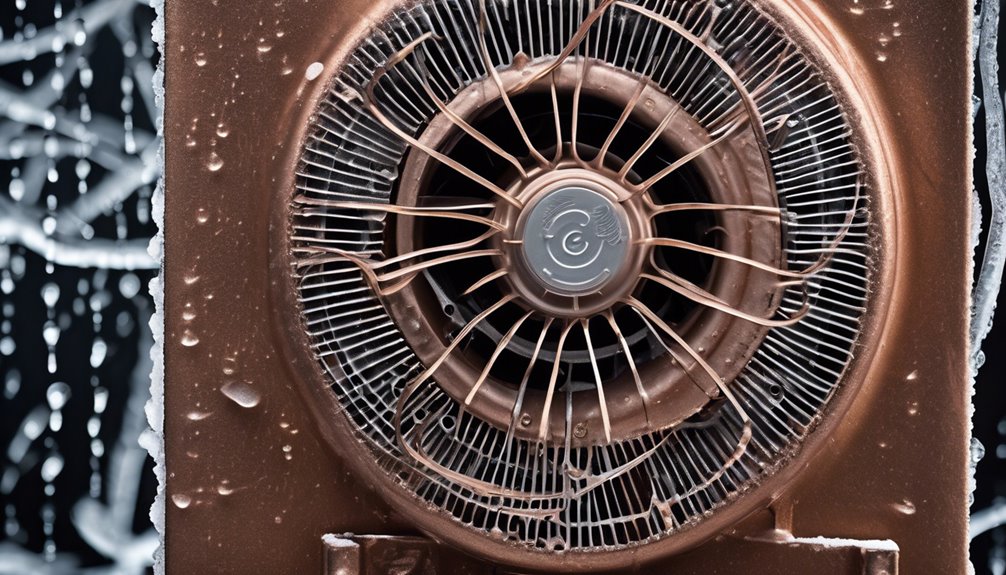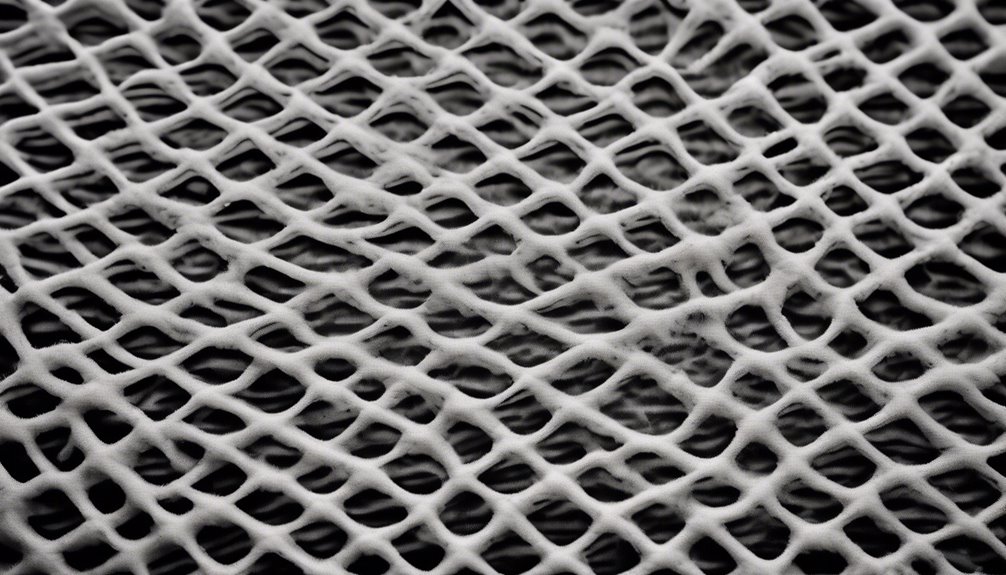You can prevent AC condensation problems by taking proactive steps. Start by checking your AC unit's installation and maintenance records to identify potential leak sources, and look for signs of water damage or corrosion around connections and pipes. Ensure proper drainage, clean condenser coils regularly, and insulate and seal ducts to prevent heat loss. Finally, monitor humidity levels in your home to prevent moisture buildup. By following these tips, you'll be well on your way to avoiding costly condensation issues – and there's more to learn to keep your AC running smoothly.
Key Takeaways
- Identify and fix leaks promptly to prevent water damage and corrosion, ensuring all connections are tightened and seals are replaced.
- Ensure proper drainage by sloping the condensate drain line, checking for clogs, and maintaining the condensate pump.
- Clean the condenser coils regularly to prevent reduced airflow, increased energy bills, and compressor failure.
- Insulate and seal ducts to reduce heat loss, prevent moisture buildup, and improve AC efficiency.
- Monitor humidity levels using a hygrometer and adjust AC settings accordingly to prevent moisture buildup and condensation problems.
Identify and Fix Leaks
Check your AC unit's installation and maintenance records to identify any potential leak sources.
Look for signs of water damage, rust, or corrosion around the unit's connections and pipes. You can also use leak detection methods like soap bubble testing or pressure testing to identify leaks.
Once you've found a leak, it's essential to repair it promptly using leak repair techniques like soldering or replacing faulty components. Make sure to tighten all connections and replace worn-out seals to prevent future leaks.
Ensure Proper Drainage
Now that you've identified and fixed any leaks, it's time to focus on ensuring your AC unit's drainage system is functioning correctly.
A well-designed drainage system is crucial to prevent water accumulation around your unit. Check that the condensate drain line is properly sloped to allow gravity to do its job.
A well-designed drainage system prevents water accumulation, ensuring your unit stays safe and dry.
Make sure the drain line isn't clogged and that the condensate pump is working correctly. Regular condensate pump maintenance is essential to prevent breakdowns.
Check the pump's float switch and ensure it's not stuck, and clean the pump filter to keep it running smoothly. By ensuring proper drainage, you'll prevent water damage and reduce the risk of mold and mildew growth around your AC unit.
Clean the Condenser Coils
Your air conditioner's condenser coils are responsible for dissipating heat from the refrigerant, and when they're dirty, your AC's performance suffers.
Dirty coils lead to reduced airflow, increased energy bills, and even compressor failure. To avoid these consequences, establish a coil cleaning schedule.
You should clean your condenser coils every 1-3 months, depending on your AC's usage and environment. Use a garden hose to gently remove dirt and debris, or a specialized coil cleaning brush for more stubborn grime.
Regular cleaning ensures your AC operates efficiently and effectively, saving you money and reducing the risk of breakdowns. By staying on top of coil cleaning, you'll prevent dirty coil consequences and keep your AC running smoothly.
Insulate and Seal Ducts
Leaky and uninsulated ducts can be a significant contributor to AC condensation issues. You can prevent this by insulating and sealing your ducts properly. There are various duct insulation methods you can use, such as wrapping ducts with fiberglass blankets or using reflective insulation. When it comes to duct sealing materials, you have options like mastic sealant, foil tape, or aerosol sealant.
| Duct Insulation Methods | Duct Sealing Materials | Benefits |
|---|---|---|
| Fiberglass blankets | Mastic sealant | Reduces heat loss, energy-efficient |
| Reflective insulation | Foil tape | Easy to install, cost-effective |
| Spray foam insulation | Aerosol sealant | Provides high R-value, durable |
Monitor Humidity Levels
High humidity levels in your home can exacerbate AC condensation issues.
If you live in a humid climate, it's essential to monitor humidity levels to prevent moisture buildup. You can install a hygrometer to measure the humidity levels in your home.
Regularly check the readings and adjust your AC settings accordingly. Humid climate solutions, such as whole-house dehumidifiers, can also be effective.
Additionally, ensure your humidity sensor is calibrated correctly. A faulty sensor can lead to incorrect readings, causing your AC to malfunction.
Frequently Asked Questions
Can I Use a Dehumidifier to Reduce AC Condensation?
You're wondering if a dehumidifier can help reduce condensation issues. In a humid climate, it's a great idea, as it'll help with moisture control, making your AC work more efficiently and reducing condensation buildup.
Will Condensation Problems Affect My Ac's Energy Efficiency?
You're right to wonder if condensation issues impact your AC's energy efficiency – and the answer is yes! When moisture accumulates, it reduces your AC's cooling capacity, making it work harder and increasing energy bills, highlighting the importance of effective moisture management.
How Often Should I Inspect My AC for Condensation Issues?
You should inspect your AC regularly, ideally during routine maintenance and seasonal checks, to catch condensation issues before they become major problems, ensuring your system runs efficiently and effectively throughout the year.
Can I Fix Condensation Problems on My Own or Do I Need a Pro?
You're wondering if you can tackle condensation issues solo or need expert help. While you can try DIY troubleshooting, it's often best to leave the diagnosis to a pro to ensure accurate identification and effective solutions.
Will Condensation Damage My Ac's Electrical Components?
You're right to worry about condensation damaging your AC's electrical components. Moisture risks seeping into connectors and circuits, causing electrical shorts that can lead to costly repairs or even a system breakdown if you don't address it promptly.
Conclusion
You've taken the right steps to prevent AC condensation problems. By identifying and fixing leaks, ensuring proper drainage, cleaning the condenser coils, insulating and sealing ducts, and monitoring humidity levels, you've significantly reduced the risk of water damage, mold growth, and system breakdowns. Now, enjoy a cooler, healthier, and more efficient home with your AC running smoothly and quietly.



